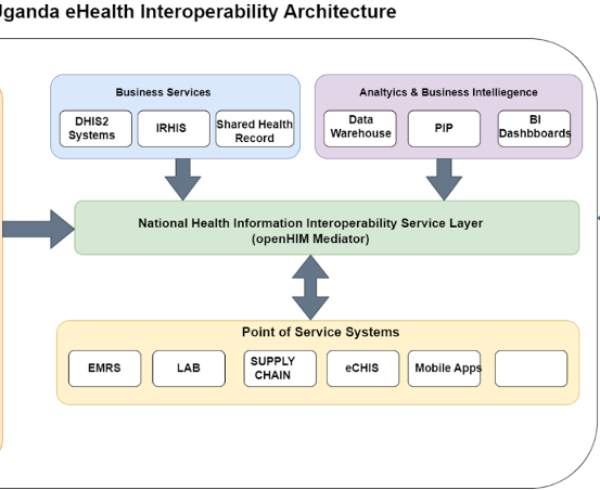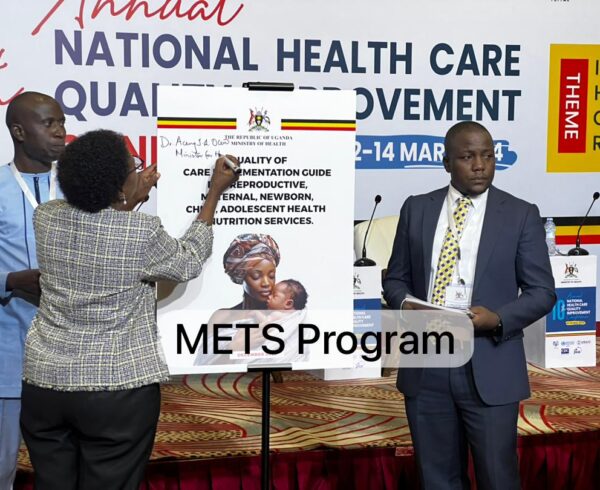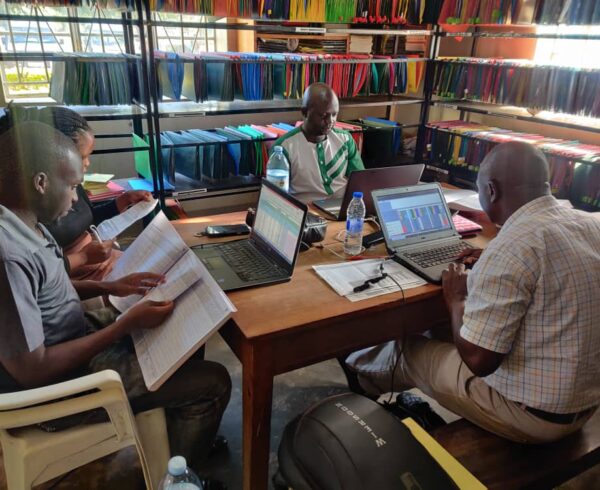By: Nancy Karunganwa and Herbert Mulira
In 2019 the Ministry of Health comprehensively revised the Health Management Information System (HMIS) in a bid to harmonize data needs of various stakeholders.
At the beginning of 2020, the Ministry of Health (MoH), with support from PEPFAR, revised and rolled out the HIV HMIS forms (version 2019) through national, regional and district staff training including on-site mentorships on the revised HMIS tools. HMIS is a system which records, stores, processes and generates timely and accurate data that is used to improve decision-making at various levels within the health sector.
HMIS data is used to monitor health sector policies, guidelines and implementation. The HMIS helps to ensure routine documentation and identification of warning signals from evaluation of indicators. Production of high quality statistics is dependent on assessment of data quality and actions taken to improve it. HMIS data and indicators are reviewed every five years with mid-term review taking place every two and half years.
MoH with support from METS organized a 14-day retreat from 4 – 15 July 2022 at the Source of the Nile Hotel in Jinja. Several key stakeholders participated with over 130 representatives from the Ministry of Health/AIDS Control Program, Centers for Disease Control (CDC), USAID, METS, SITES, Uganda Cancer Institute, National Tuberculosis and Leprosy Program (NTLP), National Drug Authority, Regional Referral Hospitals, ARC, PATH, PEPFAR Implementing Partners such as Baylor Uganda, Rakai Health Sciences Program, TASO, Mildmay among others.
METS provided technical support in the thematic area working groups of HIV Testing Services (HTS), PMTCT/EID, Care and Treatment, Safe Male Circumcision (VMMC), Supply Chain management and Laboratory, KP/PP/PreP and Tuberculosis (TB).
The activity started with understanding the existing primary and secondary HMIS Tools and indicators, seven (7) Technical Working Groups were created to review and propose changes in existing tools and as well introduce new HMIS Tools in order to address the existing data demands in the various program areas. Each group was also assigned a designer who effected the proposed changes in the tools for the groups to visualize the impact of the suggested changes.
The group activities were presented to a plenary consisting of all the participants for feedback and input, as well as discussion on the way forward on the tools. To note, a number of tools required additional consultation on the proposed changes.
The Program Manager, AIDS Control Program, who was represented by the HIV Prevention Coordinator, Dr. Peter Mudiope, highlighted the need to learn from the challenges experienced in the previous HMIS reviews and formulate strategies to mitigate these challenges to avoid a recurrence. He further emphasized the increasing demand for quality data to support making of informed decisions in HIV programming.
He re-echoed the commitment of the Ministry of Health to support the review from the beginning to the end even with the existing competing activities.
The PEPFAR Coordination Office was represented by Rachel Kwezi. In her remarks she thanked METS for supporting the retreat and applauded CDC, USAID and other partners for the work they were tirelessly putting-in towards ending AIDS by 2030. She encouraged healthy discussions and cautioned on the need to have all data requirements taken care of.
The retreat resulted in reviews of all existing primary and secondary HMIS tools and agreed on amendments in the 7 Program Areas. These amendments addressed identified gaps in data capture and reporting. Participants agreed on a roadmap for completion of the review of the mid term HMIS review including the piloting of the proposed tools as well as the final roll out of the revised tools.
Additionally, the retreat also identified challenges that may affect successful completion of the HMIS Mid-Term review and possible solutions to address these challenges.
As next steps, MOH-ACP team will follow-up with the seven-program area working groups to address some of the issues that were left pending to ensure that the revised tools are ready for pilot testing. Health Care workers will continue using the old tools pending training and approval of the revised tools. Based on the agreed upon road map, the revised HMIS tools are likely to be implemented starting from July 2023.




